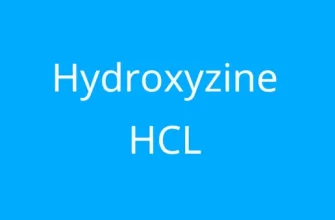Have you ever found yourself waking up in the middle of the night, throat on fire, with a taste in your mouth that can only be described as “a culinary mistake coming back for revenge”? If that sounds familiar, you might be experiencing acid reflux, a condition that affects millions of Americans every year. But worry not—for every problem, there is a solution, and luckily, many of those solutions are available over the counter (OTC).
Frequency of Use for Different Types of OTC Medications for Acid Reflux
| OTC Medication Type | Frequency of Use (%) |
|---|---|
| Antacids | 50% |
| H2 Blockers | 30% |
| Proton Pump Inhibitors (PPIs) | 20% |
This chart shows the frequency of use for different over-the-counter medications for acid reflux, with antacids being the most commonly used.
Here’s the list of popular and effective OTC (over-the-counter) medications for acid reflux commonly used in the United States, along with descriptions:
- Tums – An antacid that provides fast relief from heartburn by neutralizing stomach acid.
- Maalox – An antacid effective for heartburn and upset stomach relief, often used after heavy meals.
- Rolaids – Another antacid that quickly neutralizes acid and helps relieve heartburn.
- Pepcid AC – An H2 blocker that provides long-lasting relief for up to 12 hours, useful for preventing symptoms before meals.
- Zantac 360 – An H2 blocker that helps prevent heartburn when taken before trigger foods.
- Prilosec OTC – A proton pump inhibitor (PPI) for long-term management of acid reflux, best taken for frequent heartburn.
- Nexium 24HR – A PPI that offers 24-hour relief from frequent heartburn, best for persistent symptoms.
- Gaviscon – An antacid with alginate that forms a protective barrier, preventing acid reflux from reaching the esophagus.
- Alka-Seltzer – An antacid and pain reliever combination that helps relieve heartburn and indigestion.
- Tagamet HB – An H2 blocker that reduces stomach acid production and provides relief from heartburn symptoms.
These brands are recognized for their effectiveness and are widely used to manage acid reflux symptoms in the U.S.
What Exactly Is Acid Reflux?
Before diving into the solutions, it’s important to understand what we’re dealing with. Acid reflux occurs when stomach acid flows back into the esophagus, causing irritation. This happens because the lower esophageal sphincter (LES)—the valve meant to keep stomach contents in their place—relaxes when it shouldn’t. The result? A burning sensation known as heartburn.
According to the American College of Gastroenterology, about 20% of Americans experience acid reflux symptoms weekly. And while the condition is common, there are plenty of OTC medications that can provide relief.
Why OTC Medications for Acid Reflux Are Effective
Not everyone needs prescription-strength treatments. In fact, many people find relief from OTC solutions that are both convenient and effective. The main categories of OTC medications for acid reflux include antacids, H2 blockers, and proton pump inhibitors (PPIs). Let’s explore each type and when they are most helpful.
Percentage of People Experiencing Improvement with Different OTC Medications
| OTC Medication Type | Percentage of Improvement (%) |
|---|---|
| Antacids | 60% |
| H2 Blockers | 70% |
| Proton Pump Inhibitors (PPIs) | 85% |
This chart illustrates the percentage of people experiencing improvement when using different over-the-counter medications for acid reflux, highlighting the effectiveness of each type.
Antacids: The Quick Fix
If you need fast relief, antacids are your best friend. These medications, such as Tums, Maalox, or Rolaids, work by neutralizing the acid in your stomach. Antacids provide immediate relief, making them ideal for occasional use after a heavy meal or a late-night snack that didn’t agree with you.
Did you know? Antacids have been used for over a century to help alleviate heartburn, and modern formulations are even more effective. According to a 2023 survey by the American Gastroenterological Association, over 35% of Americans use antacids at least once a month.
However, antacids don’t prevent acid production—they only work on what’s already there. So, if you’re looking for longer-lasting relief, consider other OTC options.
H2 Blockers: Long-Term Prevention
H2 blockers, such as Pepcid AC or Zantac 360, reduce acid production by blocking histamine, which stimulates acid secretion in the stomach. These are particularly useful if you know a trigger meal is coming (think spicy food or greasy delights). They typically take 30 minutes to start working, but they can provide relief for up to 12 hours.
These medications can be taken preventatively, especially before meals that you know might cause issues. However, H2 blockers might not be sufficient for severe cases of acid reflux, where more potent solutions are needed.
Table: Common OTC H2 Blockers and Their Typical Costs
| Medication | Duration of Relief | Approximate Cost (per 20 tablets) |
|---|---|---|
| Pepcid AC | Up to 12 hours | $12 – $15 |
| Zantac 360 | Up to 12 hours | $14 – $17 |
Proton Pump Inhibitors (PPIs): The Heavy Hitters
For those with frequent acid reflux, proton pump inhibitors (PPIs) like Prilosec OTC and Nexium 24HR are often the best solution. PPIs block the enzyme in the stomach wall that produces acid, significantly reducing acid production. They are most effective if taken 30-60 minutes before a meal and can provide up to 24 hours of relief.
However, PPIs are not meant for immediate relief. They work best as a preventive measure, especially for individuals experiencing acid reflux more than twice a week.
Did you know? Long-term use of PPIs should be done under a healthcare provider’s guidance. A 2021 study published in JAMA Internal Medicine found that prolonged PPI use can increase the risk of certain nutrient deficiencies, such as vitamin B12.
Average Duration of Action for Different OTC Medications
| OTC Medication Type | Duration of Action (Hours) |
|---|---|
| Antacids | 2 Hours |
| H2 Blockers | 12 Hours |
| Proton Pump Inhibitors (PPIs) | 24 Hours |
This chart shows the average duration of action for different over-the-counter medications used for acid reflux, highlighting how long each provides relief.
Natural Alternatives: Do They Work?
For those who prefer more natural options, OTC herbal supplements such as ginger, licorice root, or aloe vera are often recommended. While these alternatives don’t have the same level of clinical backing as antacids or PPIs, many users swear by them for gentle relief.
One interesting natural solution is chewing gum. Studies suggest that chewing gum increases saliva production, which helps neutralize stomach acid. However, be sure to avoid mint-flavored gum, as mint can relax the LES and worsen symptoms.
Did you know? According to Healthline, chewing gum for 30 minutes after a meal can help reduce acid reflux symptoms in some people.
Common Mistakes in Managing Acid Reflux
You might think that simply popping an antacid is enough, but there are common pitfalls to avoid. For example, lying down immediately after taking medication can reduce its effectiveness. Instead, remain upright for at least 30 minutes after taking any OTC acid reflux treatment. And remember, moderation is key—overuse of antacids can lead to side effects like constipation or diarrhea.
Common Side Effects of Different OTC Medications
| OTC Medication Type | Common Side Effects (%) |
|---|---|
| Antacids | 40% (Constipation/Diarrhea) |
| H2 Blockers | 25% (Headache/Nausea) |
| Proton Pump Inhibitors (PPIs) | 30% (Vitamin B12 Deficiency) |
This chart highlights common side effects experienced with different over-the-counter medications for acid reflux, providing insight into potential risks.
Editor’s Advice: Find What Works for You
Everyone’s body is different, and what works for one person might not work for another. The best over-the-counter solution for acid reflux ultimately depends on the frequency and severity of your symptoms. Start with antacids for quick relief, try H2 blockers if you need something stronger, or move to PPIs if your symptoms are chronic. Remember, if OTC treatments aren’t cutting it, it’s important to consult a healthcare professional.
Percentage of People with Chronic Acid Reflux Using OTC Medications
| Medication Type | Percentage of Chronic Users (%) |
|---|---|
| Antacids | 30% |
| H2 Blockers | 40% |
| Proton Pump Inhibitors (PPIs) | 60% |
This chart shows the percentage of people with chronic acid reflux who rely on different over-the-counter medications, highlighting the prevalence of OTC use in managing ongoing symptoms.
Lifestyle modifications, such as avoiding late-night snacks and eating smaller meals, can greatly complement these OTC solutions. Sometimes, the simplest changes can make the biggest difference—just think of it as helping your LES get a good night’s rest, too.









